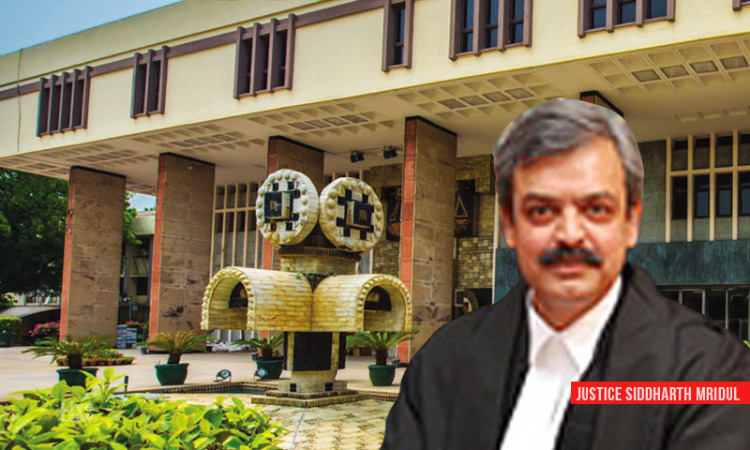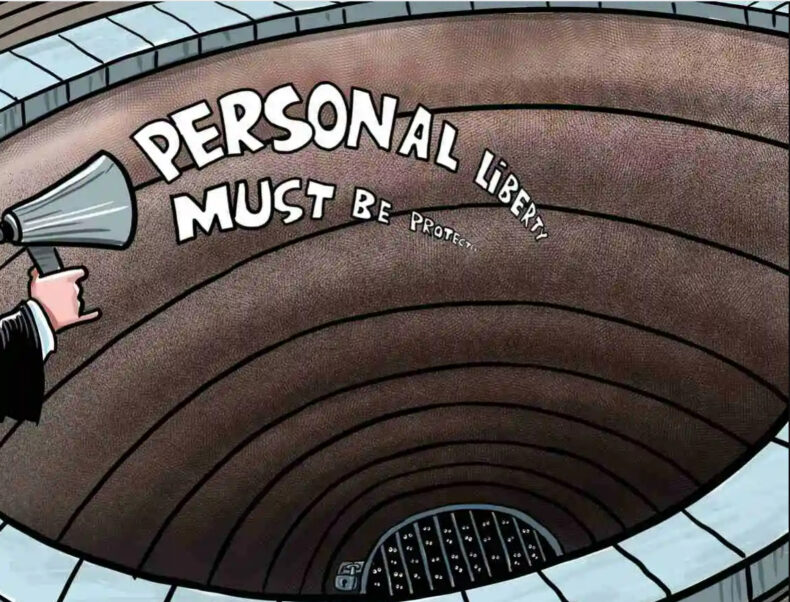In a recent discourse organized by the Centre for Discourses on Criminal and Constitutional Jurisprudence, Justice Siddharth Mridul of the Delhi High Court delivered a thought-provoking address on the paramount importance of personal liberty and the principle of presumption of innocence within the criminal justice system. His remarks shed light on the evolving nature of these principles, their historical significance, and their relevance in modern-day democracies.

Recognizing Personal Liberty as the Cornerstone of Civilization
Justice Mridul began by highlighting the fundamental role that personal liberty plays in defining the essence of civilization. He asserted that personal liberty isn’t merely a contemporary concept; it has deep roots in history. Throughout the ages, the struggle for personal freedom has evolved from the clash between subjects and monarchs to the present-day contest between citizens and the executive. In a flourishing democracy, safeguarding individual liberty stands as a vital obligation.
Presumption of Innocence: From Human Right to Fundamental Right
The judge underscored the principle of presumption of innocence as the “elixir” of the criminal justice system. He traced its evolution from being considered a human right by the honorable Supreme Court to its recognition as a fundamental right in India. This presumption, he argued, is not only crucial for the protection of the innocent but also for maintaining the integrity of the legal process.
Constitutional Guarantees: Modern Safeguard for Personal Liberty
Justice Mridul further delved into the emergence of constitutional guarantees as a modern-day device to shield individual liberty from state interference. He explained that the very notion of guaranteeing liberty implies the existence of a higher power that ensures liberty as a special privilege. The Constitution’s role in safeguarding personal freedom against legislative actions is, in his view, the essence of this guarantee.
Balancing Crime Control and Due Process Models
The judge elaborated on the dichotomy between the crime control model and the due process model. While the former prioritizes punishing the guilty, it may occasionally lead to the wrongful conviction of the innocent. In contrast, the latter seeks to protect the rights of the accused, even if it means that some guilty individuals might evade punishment. Justice Mridul stressed that both models share the objective of punishing the guilty and sparing the innocent.
Presumption of Innocence and Bail
Justice Mridul highlighted that bail is an integral part of the presumption of innocence. He acknowledged the state’s interest in preventing heinous offenses but argued that this interest can be achieved through traditional bail rules. These rules necessitate a comprehensive evaluation of the accused’s background, the prima facie case against them, and the gravity of the offense before granting bail.
Equality Before the Law: Article 14 and Article 21
In his concluding remarks, Justice Mridul emphasized that every accused individual, regardless of the charges they face, is entitled to the presumption of innocence and the basic tenets of fairness enshrined in Article 21 read with Article 14 of the Indian Constitution. He cautioned that treating two offenders differently in terms of the presumption of innocence would violate Article 14.
A Call for Upholding Fundamental Rights
Justice Siddharth Mridul’s discourse served as a reminder of the critical role that personal liberty and the presumption of innocence play in the criminal justice system. His insights underscored the delicate balance that legal systems must maintain between crime control and due process models. As law students and legal practitioners reflect on these principles, they are prompted to advocate for the protection of fundamental rights and uphold the ideals upon which modern democracies are built.













